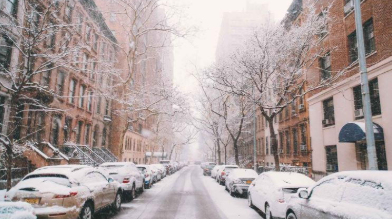When winter temperatures drop in New York, adequate indoor heating isn’t just a comfort it’s a legal requirement. The New York Heating Law establishes clear rules for landlords to ensure tenants live in safe and warm conditions during the city’s coldest months. Both landlords and tenants benefit from understanding these laws, as they outline responsibilities, rights, and remedies when heating issues arise.
Understanding the Heating Season
Under the New York Heating Law, the official heating season runs from October 1 through May 31 each year. During this period, landlords are legally required to maintain specific indoor temperatures, regardless of whether the building uses steam heat, hot water systems, or electric heating.
The law sets two main standards:
-
Daytime (6 a.m. to 10 p.m.): If the outside temperature drops below 55°F, the indoor temperature must be at least 68°F.
-
Nighttime (10 p.m. to 6 a.m.): Indoor temperatures must be at least 62°F, regardless of the outside temperature.
Landlord Responsibilities
Landlords in New York City must:
-
Maintain Heating Equipment – Boilers, furnaces, and other heating systems must be kept in working order.
-
Comply with Temperature Standards – Landlords are obligated to monitor weather conditions and adjust heating accordingly.
-
Respond Promptly to Complaints – If tenants report a heating problem, landlords must address the issue quickly.
Failure to follow these rules can lead to legal action, fines, or repair orders from the city’s Department of Housing Preservation and Development (HPD).
Tenant Rights and Actions
Tenants have the right to a livable home, which includes adequate heating. If your landlord fails to provide the required heat, you can:
-
Contact 311 – Report the lack of heat to HPD, which can issue violations.
-
Document the Issue – Keep records of dates, times, and temperatures when heat was insufficient.
-
Seek Legal Remedies – In severe cases, tenants may take legal action to compel the landlord to restore heat or reduce rent.
In some situations, tenants can withhold rent, but this should be done only after consulting with a qualified attorney to avoid legal repercussions.
Penalties for Non-Compliance
The city imposes strict penalties for landlords who fail to meet heating requirements. Fines can range from $250 to $500 per day for initial violations and increase for repeated offenses. In extreme cases, the city may arrange emergency repairs and bill the landlord.
Special Considerations
While the New York Heating Law covers most residential buildings, certain exceptions may apply, such as in co-ops, condos, or buildings with individual heating systems where tenants control their own thermostats.
Additionally, heating requirements do not override agreements where tenants are responsible for their own utilities. However, the overall obligation to maintain a habitable living space still applies.
Why Knowledge of the Heating Law Matters
For tenants, knowing your rights ensures you won’t endure freezing nights without recourse. For landlords, compliance avoids costly penalties and disputes. In both cases, understanding the New York Heating Law promotes healthier, safer living conditions and fosters better landlord-tenant relationships.
Winter in New York can be brutal, but the law is clear: every tenant deserves adequate heat. By following the guidelines of the New York Heating Law, landlords fulfill their legal duties, and tenants can enjoy a warm, safe home during the coldest months of the year.

Join our community to interact with posts!